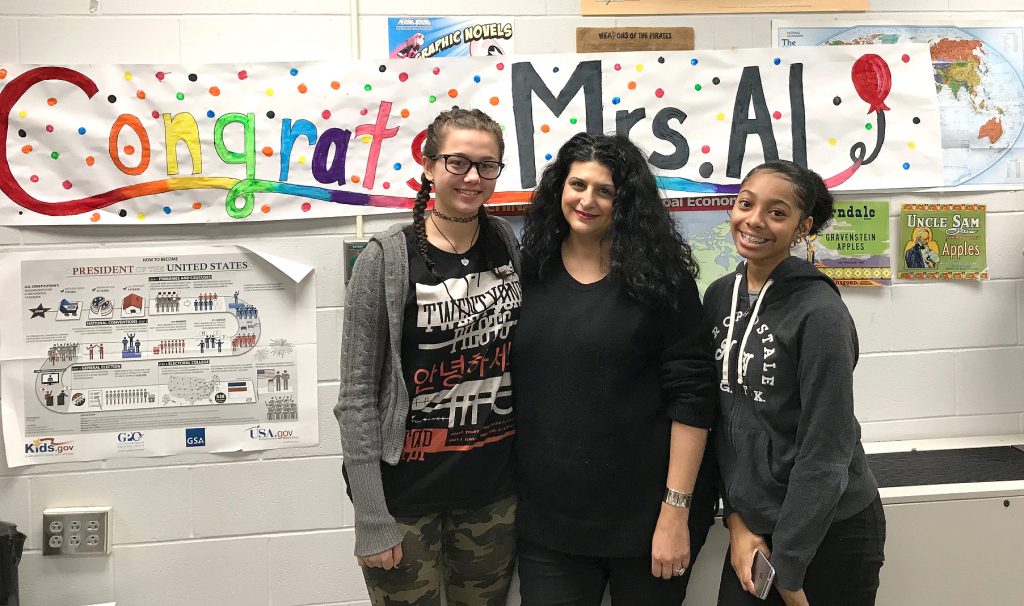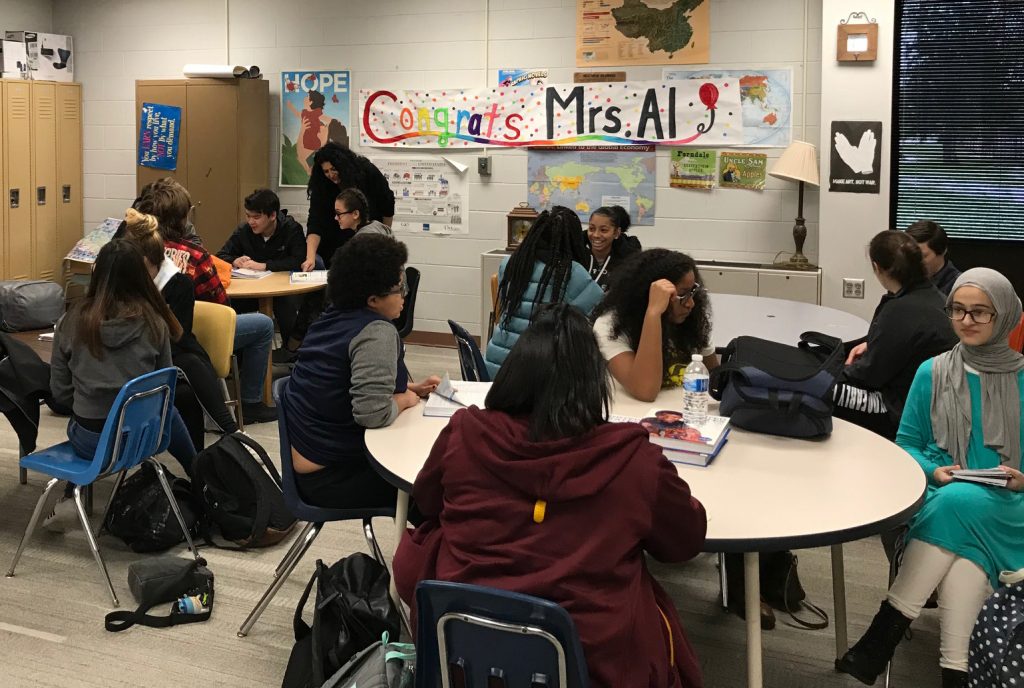Q and A with Mona Al-Hayani, Ohio’s 2019 Teacher of the Year
Mona Al-Hayani, better known as “Mrs. Al,” has earned the title of Ohio’s 2019 Teacher of the Year. A Toledo native, Al-Hayani (A/S ‘94, MEd ’99) teaches history at Toledo Early College High School. She will represent the state of Ohio in the 2019 National Teacher of the Year selection sponsored by the Council of Chief State School Officers.
Al-Hayani received two U.S. Department of Education Fulbright Hayes awards to travel abroad and create history curricula based on her travels to South Africa and the Middle East. She has researched human trafficking and has trained more than 11,000 school practitioners and students about the risks to students in Toledo and the region. She continues to develop curriculum modules for teachers on human trafficking risks and social media safety for students. Al-Hayani also is serving her fifth year as vice president of the Toledo Federation of Teachers.
You’ve been acknowledged for preparing, encouraging and empowering your students to be engaged citizens. How do you do that?

How did you become involved in addressing the issue of human trafficking?
Kevin Dalton, president of the teacher’s union, knew I was interested in social justice and civil rights. He told me, ‘Youth in Toledo may be susceptible to being trafficked.’ That was five years ago. We were worried about it infiltrating our students because vulnerability is the common denominator among trafficked youth. Obviously, Toledo Public School kids are facing a lot of issues in their lives. At that time, the Senate proposed that all school practitioners in the state of Ohio had to have some kind of human trafficking training under Safety and Violence Protection Training. A lot of mandates come unfunded, so I said, I’m going to do research, which I did for an entire year. I talked to all of the players. I created a human trafficking school practitioner training, and I trained every school practitioner in Toledo Public Schools, including bus drivers, to have awareness and be able to identify some of the risk factors of youth who are susceptible to being trafficked. It kind of evolved from there.
How are your students being taught about issues like human trafficking?
For high schools, the health-education curriculum in the state of Ohio allows the addition of curriculum to meet the needs of the community. I thought that was the best avenue to bring in human trafficking, because they’re already talking about opioid addiction. Jan Lehman and Alice Murray, two health education/physical education teachers, have worked with me on developing curriculum to teach positive body and mental image, and social media safety.
Are there other risks that public school students face?
Risk factors don’t just apply to youth who are susceptible to human trafficking. Our youth are suffering from mental health crises, which has a direct link to excessive use of social media, and the safety on social media is something kids can use for the rest of their lives. Empowerment and self-love, positive body and mental image are important because of social media and the culture our students live in. There’s pressure that students feel to emulate a false perfection, which social media perpetuates. After 23 years in the classroom in TPS, I’m seeing students’ behavior changing because of this digital world.
How do your students inspire you to be the best teacher you can be?
Forging personal relationships with students is paramount to being able to academically engage them. There has to be a personal relationship. Reminding students that the goal is not always to get a 100 percent A; the goal is to learn, to listen, to think, to improve from where they are. That’s something I think is important, especially at our school. It’s a very rigorous school. I try to be a role model for them. The way I teach is more about conversation and encouraging them to use facts to back up their arguments, and to learn from one another. Also, I remind them that their voices matter, and their culture, their race and their history make them who they are. They should use that to teach others because through that there’s a path to harmony, understanding and justice.
Did your parents teach you the importance of being engaged in the democratic process?

What are your thoughts on the current state of public secondary education in the United States?
I’m not sure people understand the plight of urban education. Being a teacher is difficult enough, but when you’re an urban educator, there are a multitude of other issues that filter into the classroom. You see the societal issues our kids are facing and they have latent effects in the classroom. Our classrooms are catalysts for teaching our kids how to be democratic citizens and be informed. I think if people really saw what goes on in a classroom and they understood the role of the teacher and the relationship between teacher and student, they would have more of an appreciation. We’re one of the few countries in the world that doesn’t always appreciate teachers. The value of education is sometimes set aside, and people don’t realize that you can’t just have a construct in place for public education and then walk away from it. It needs to be fed.
I’m very lucky to be at this school, but I’ve taught at most of the TPS high schools. Teachers, the community and the legislature should collaborate to improve urban public education.






